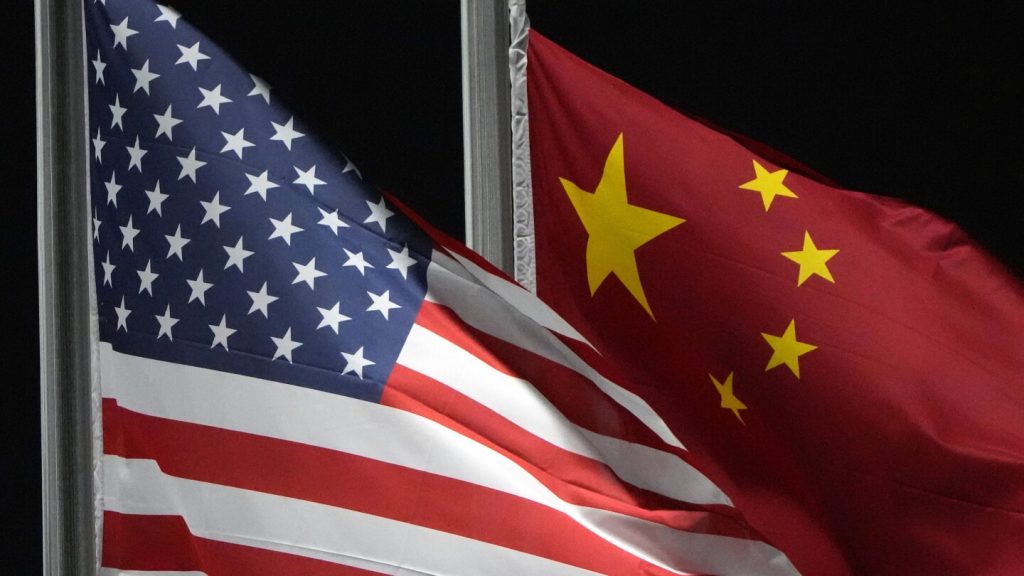In Washington, U.S. and Chinese defense officials have met to discuss unsafe and aggressive incidents between their two militaries in the Pacific region, restarting a dialogue that was abruptly ended by Beijing nearly two years ago. The meeting took place in Hawaii this week as part of an effort to expand communications between the two world powers and ease escalating tensions. This resurgence of senior military leader discussions includes routine engagements like the China-U.S. Military Maritime Consultative Agreement meeting and the bilateral Defense Policy Coordination Talks. The focus of the maritime meeting is on unsafe incidents involving the U.S. and Chinese militaries, while the coordination talks address broader policy issues. This week’s meeting involved personnel from Indo-Pacific Command, U.S. Pacific Fleet, U.S. Pacific Air Forces, and the People’s Liberation Army.
The meeting in Hawaii included about 18 senior military and civilian officials from each side, where specific incidents over the past several years were discussed in terms of operational safety concerns. One of the goals of these discussions is to maintain open, direct, and clear communications to avoid accidents and miscommunication between the two militaries. U.S. officials expressed encouragement that the People’s Liberation Army is honoring its commitments to the maritime agreement, with a reported reduction in the number of unsafe incidents by Chinese military aircraft and ships over the past few months. The aim is to ensure that this positive trend continues and to increase overall safety in the region for the troops who operate there. The need for effective military communications with China is essential for the U.S. to avoid missteps and maintain peace in the Indo-Pacific region.
The initial breakdown in military communication between the U.S. and China occurred in August 2022 when Beijing suspended all such contacts after then-House Speaker Nancy Pelosi’s visit to Taiwan. This visit by a high-ranking American lawmaker to Taiwan sparked a surge in military maneuvers by China, with warships and aircraft crossing the median line in the Taiwan Strait and challenging established norms in the region. In response to a series of unsafe intercepts by Chinese aircraft and other dangerous incidents, U.S. military officials repeatedly raised objections to China’s actions. Last year, the Pentagon released footage of more than 180 intercepts of U.S. warplanes by Chinese aircraft in a two-year period, a concerning trend for U.S. military officials. The importance of military communications to avoid such incidents has been a consistent priority for the U.S. to maintain peace and stability in the Indo-Pacific.
The thaw in relations between the U.S. and China began with a meeting between President Joe Biden and Chinese President Xi Jinping in November, followed by communication between top officials and talks to ease tensions. The recent visit to China by Treasury Secretary Janet Yellen also signals ongoing efforts to improve communication and reduce the risk of conflict between the two countries. The U.S. has emphasized the importance of maintaining peaceful military interactions with China to prevent misunderstandings and ensure the safety of troops in the region. The goal of these discussions is to enhance mutual understanding and promote stability in the Pacific, despite past incidents and challenges in the U.S.-China relationship.
Overall, the recent meeting between U.S. and Chinese defense officials in Hawaii marks a significant step towards rebuilding military communication and addressing safety concerns in the Pacific region. The dialogue between the two militaries, which was previously stalled due to political disputes, has been revived to promote cooperation, reduce tensions, and enhance operational safety for both parties. As the U.S. and China continue to engage in discussions and senior-level talks, the focus remains on maintaining open lines of communication, addressing specific incidents, and working towards a peaceful coexistence in the Indo-Pacific. The outcome of these meetings will be crucial for shaping the future of U.S.-China relations and ensuring stability in a region vital to global security and prosperity.


